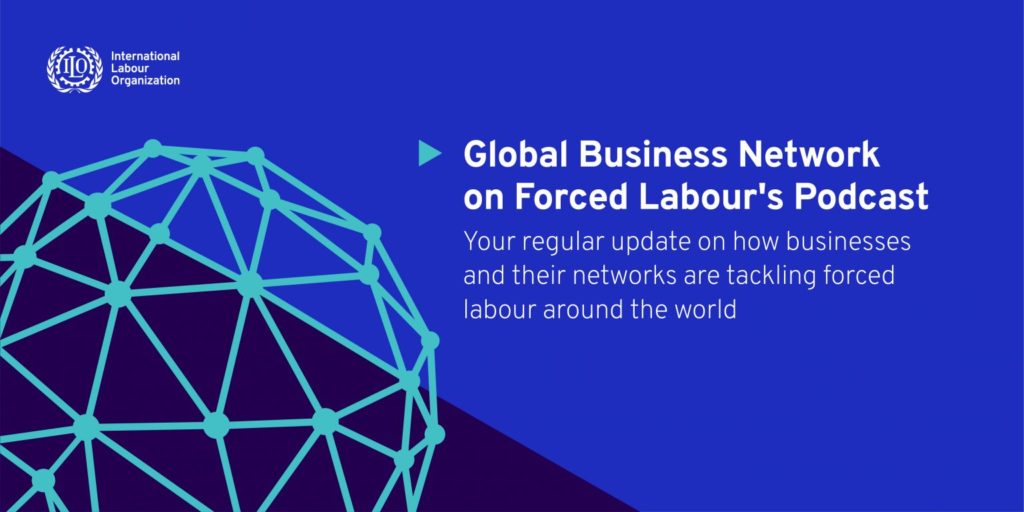Small and medium-sized businesses (SMEs) could be catalysts when it comes to ending forced labour. Despite their potential, they are often left out of the conversation. This first podcast series looks at why SMEs should be involved in eradicating forced labour and how to achieve this.
Podcast episodes
Episode 1: Calling all SMEs: Why and how to achieve responsible business conduct.
available FEBRUARY 2021
Douglas Opio, Executive Director of the Federation of Uganda Employers and Chair of the ILO GBNFL Steering Committee, explains why responsible business conduct should be at the top of each SME’s agenda.
Episode 2: SME action is more important than ever to end forced labour during COVID-19.
available MARCH 2021
Samuel Lee Moh Chuan, Senior Group HR Manager at the Wen Ken Group (Malaysia), discusses the impact of COVID-19 on Malaysian businesses, and the need to connect top down and local action on forced labour to really make a difference.
Episode 3: SMEs are crucial in the responsible business conduct conversation.
available APRIL 2021
The field of responsible business conduct has come a long way but has failed to consider and engage SMEs. Laura Spence, Professor of Business Ethics at Royal Holloway, University of London, sets out why and how SMEs should be included in the conversation.
To learn more about Professor Spence’s work visit:
- Morsing, M. and Spence, L.J. (2019) ‘Corporate social responsibility (CSR) communication and small and medium sized enterprises: The governmentality dilemma of explicit and implicit CSR communication, Human Relations, 72(12), 1920-1947.
- Crane, A., Soundararajan, V., Bloomfield, M., Spence, L. and LeBaron, G. (2019). Decent Work and Economic Growth in the South Indian Garment Industry. BA/DFID Project Report. University of Bath
